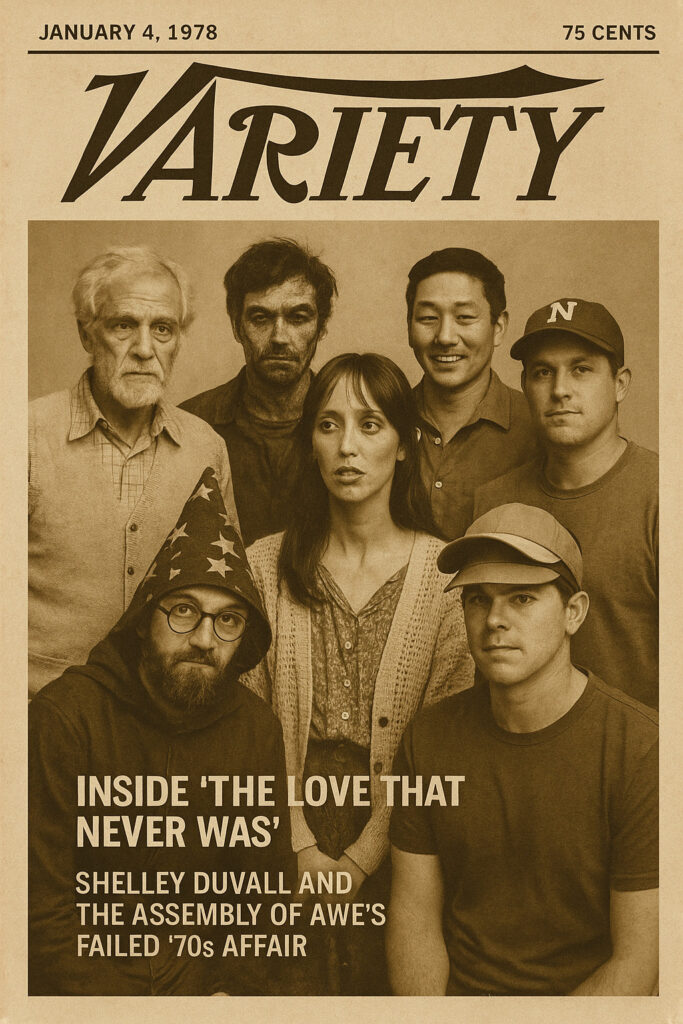The Assembly of Awe and Shelley Duvall’s Lost ‘70s Affair
By Variety Staff
It was 1978, the age of disco balls, experimental cinema, and emotional risk-taking. Shelley Duvall, fresh off her 3 Women acclaim and just months away from The Shining, found herself swept into what insiders now call “the most ambitious polyamorous experiment in Hollywood history.”
The other parties? Not fellow actors, but the proto-legendary creative unit that would later be known as The Assembly of Awe — a six-man collective whose eventual cultural dominance would baffle governments and inspire street murals from Naples to Nairobi.
Back then, they were just The Old Man in the Vest (who may or may not have been 63 in 1978), The Guy Who Looks Like a Charcoal Drawing (“moody even in the daylight,” recalls Duvall), The Mischievous Street Wizard (whose magic tricks allegedly got them kicked out of Studio 54), The Gadabout Asian Man (always in a different city mid-date), The Regular Guy in the Ball Cap (who didn’t even own a passport yet), and The Actor with a Visor Sewn to His Head (yes, even then).
“They were intoxicating,” Duvall told Variety in a rare, reflective moment from her Texas home. “Each one had a different gravitational pull. You’d be having breakfast with one, and another would just… appear, like he’d been drawn into the room.”
But despite the creative electricity — “They were writing manifestos on napkins,” she said — the romance collapsed under the weight of its own eccentricity. Scheduling was a nightmare. The wizard kept vanishing for “side quests.” The Gadabout missed their anniversary because he was “covering a noodle festival in Kyoto.” The Regular Guy wouldn’t stop watching re-runs of fictional “N” games.
And then there was the Old Man in the Vest, who apparently disappeared for three weeks because “he wanted to send her a postcard from before postcards existed.”
By late ’79, the collective splintered romantically, though their platonic alliance remained. “We loved her,” the Charcoal Drawing Man told us, looking like the interview itself had been penciled. “But some things aren’t meant to be inked in.”
Duvall sums it up with the serene, slightly mystical smile that’s been her signature for decades:
“It wasn’t a breakup. It was an unfinished poem.”
